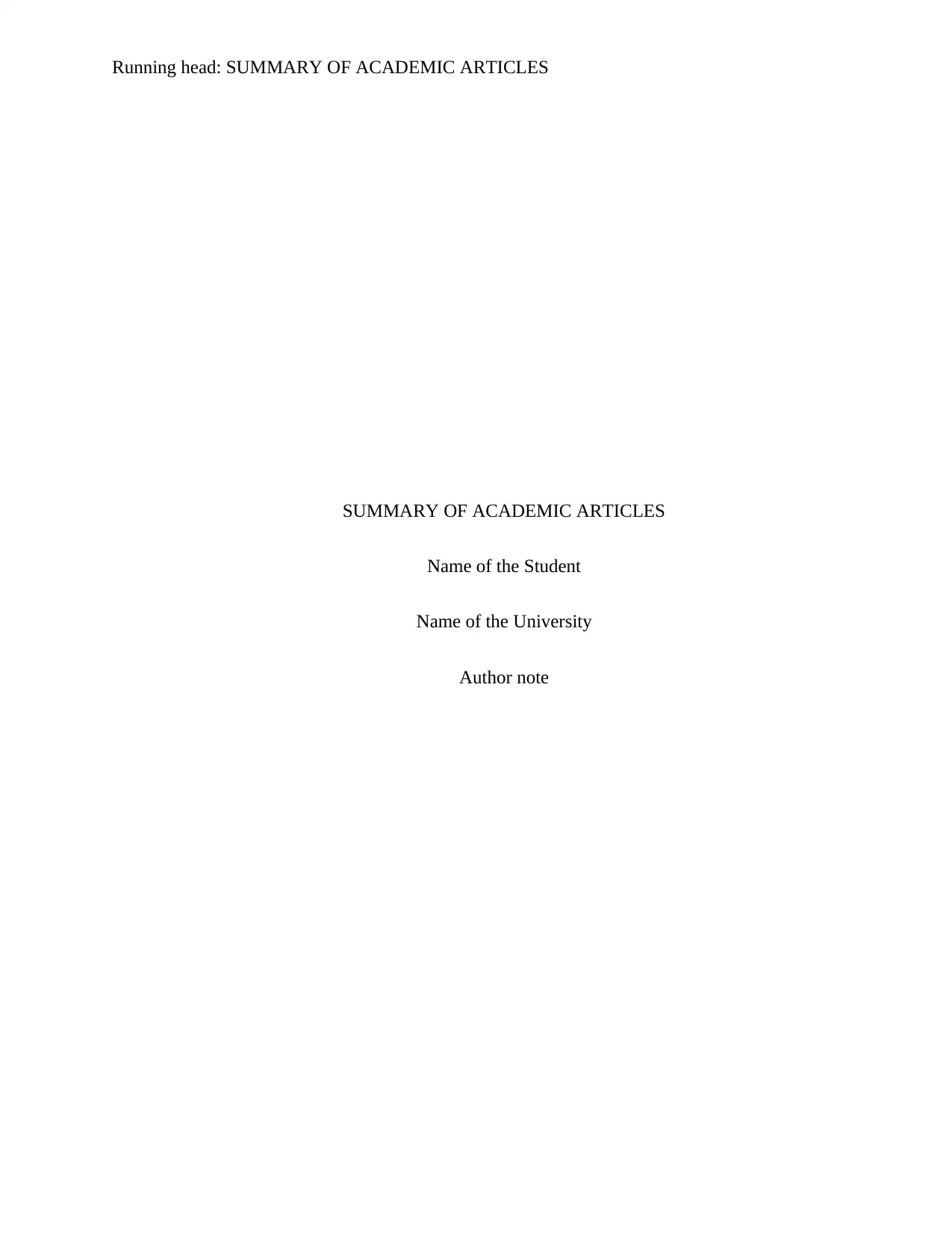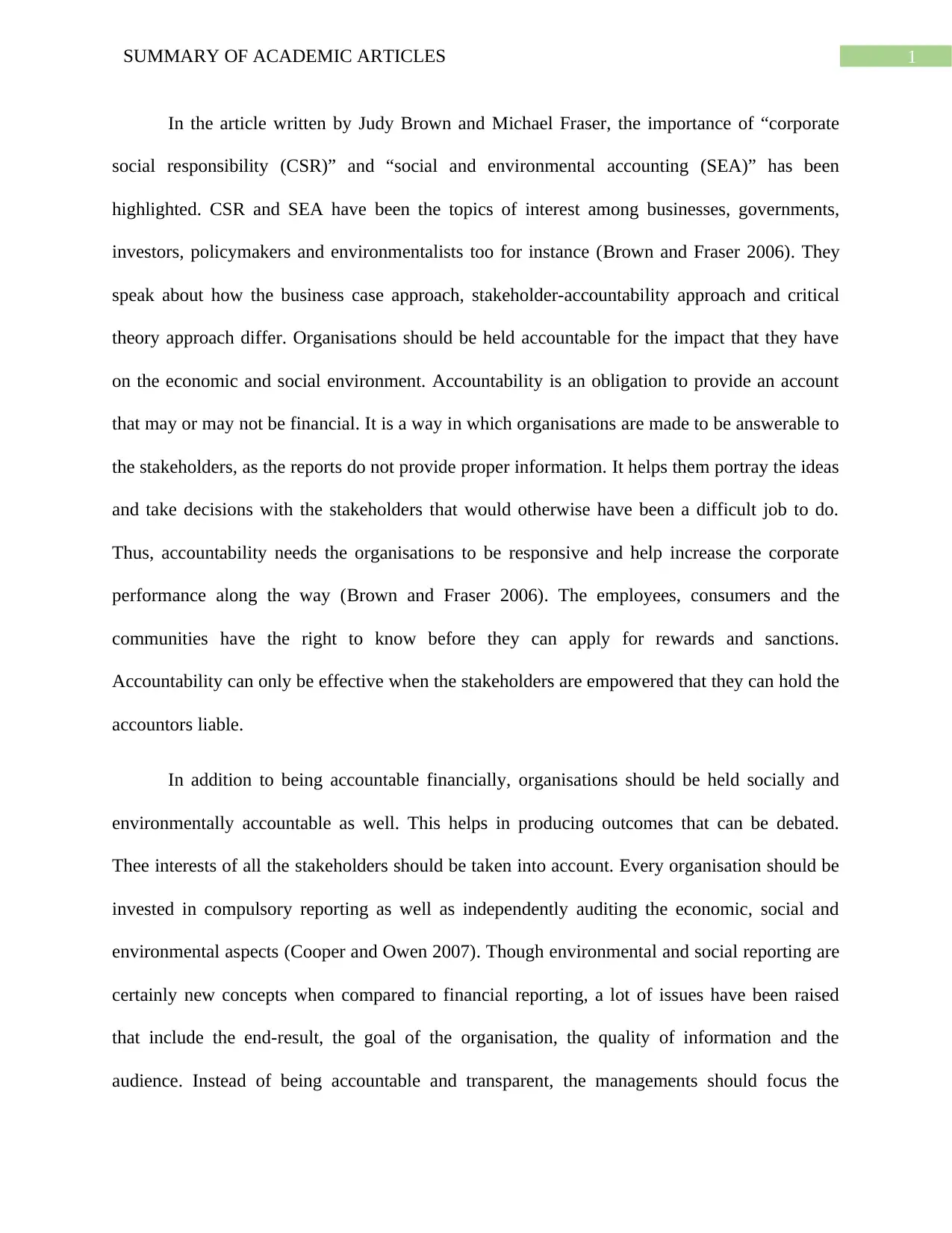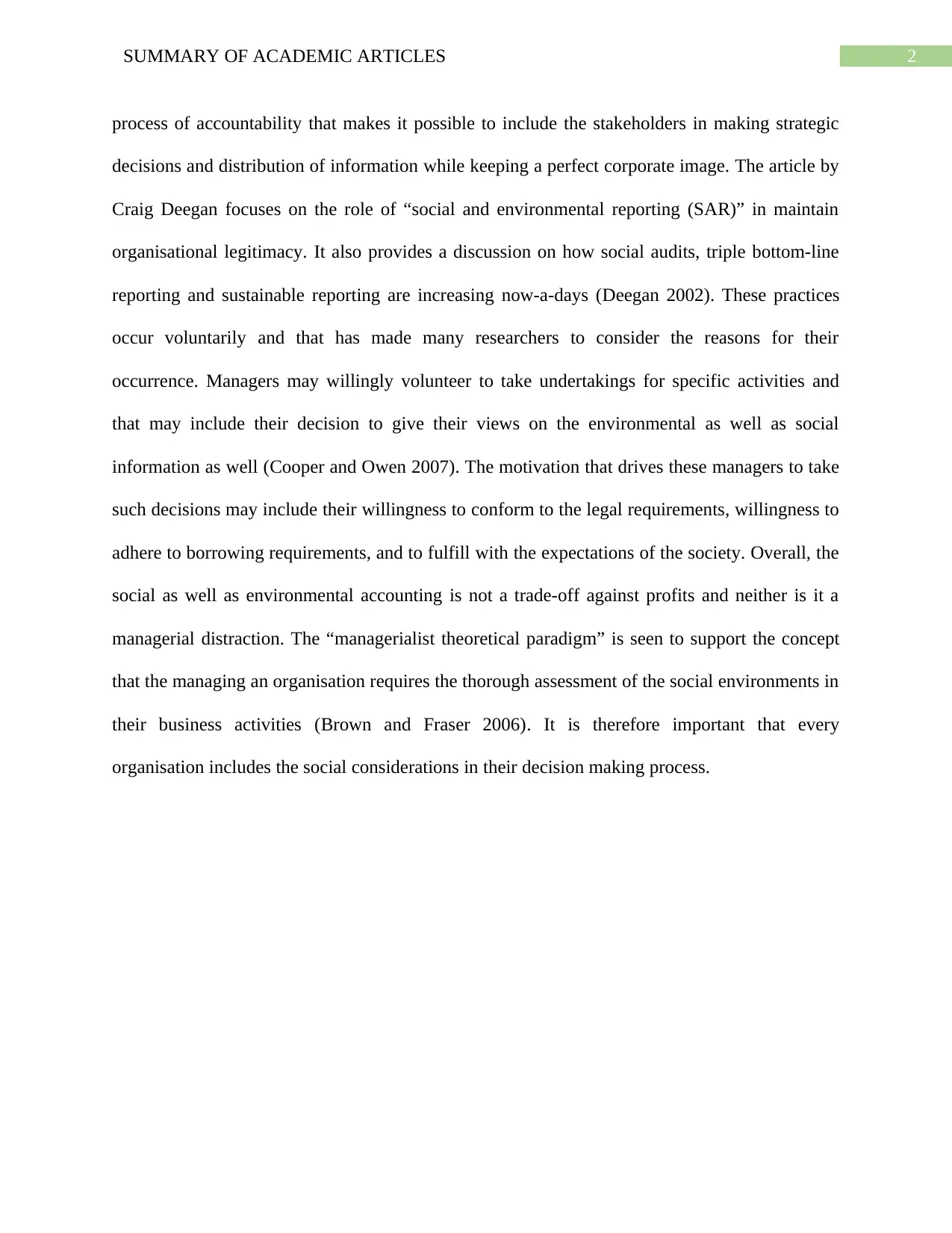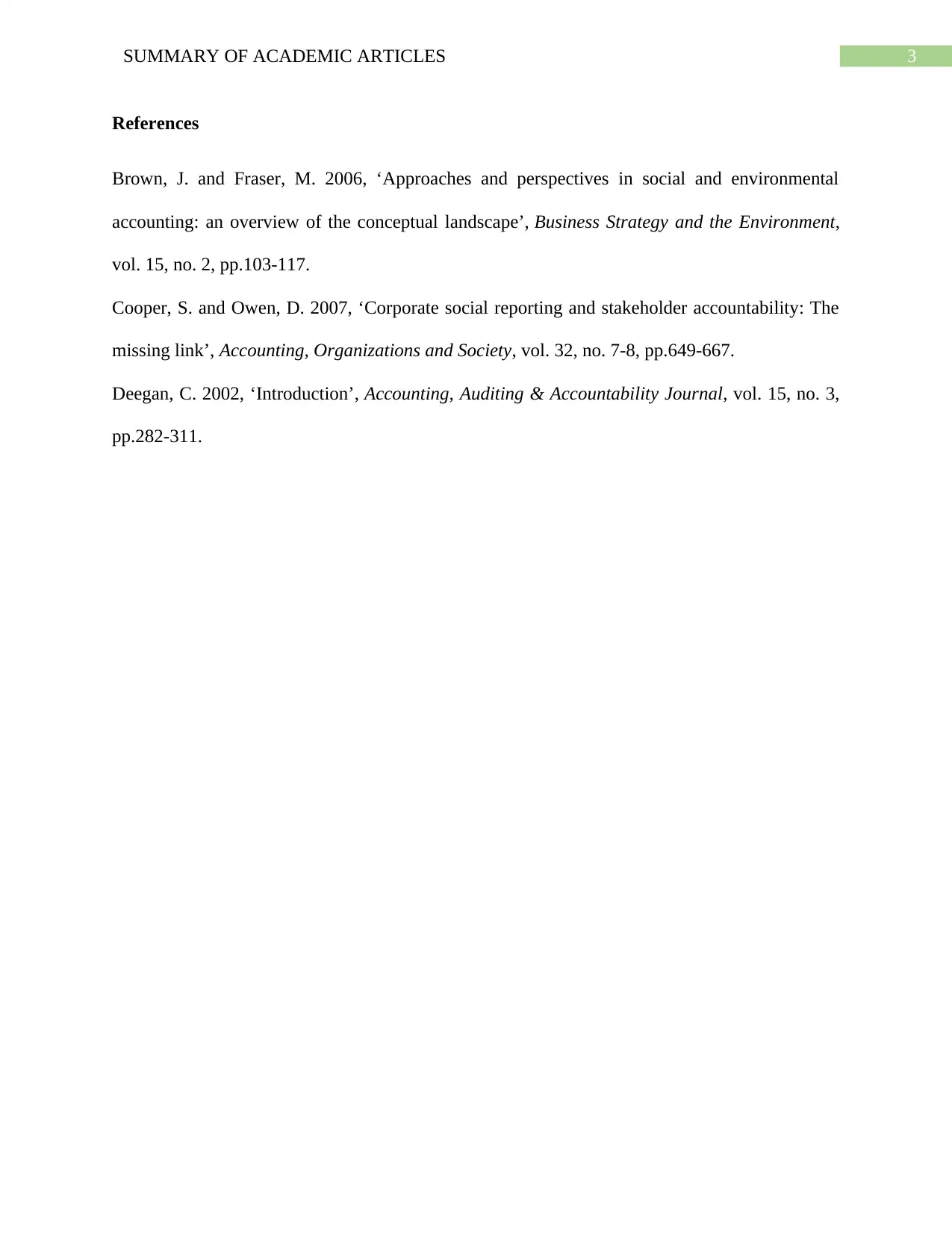Business Development: Summary of Academic Articles Assignment
VerifiedAdded on 2022/08/29
|4
|730
|41
Homework Assignment
AI Summary
This assignment provides a concise summary of three academic articles focusing on corporate social responsibility (CSR) and social and environmental accounting (SEA) within the context of business development. The first article, by Brown and Fraser (2006), explores different approaches to CSR and SEA, emphasizing the importance of accountability to stakeholders. The second article, by Cooper and Owen (2007), examines the missing link between corporate social reporting and stakeholder accountability, highlighting the need for organizations to be responsive to stakeholder interests. The third article, by Deegan (2002), discusses the role of social and environmental reporting in maintaining organizational legitimacy. The summaries highlight key concepts such as stakeholder accountability, managerialist theoretical paradigms, and the motivations behind social and environmental reporting practices, offering insights into the evolving landscape of business responsibility and its impact on corporate decision-making and performance. The articles collectively underscore the need for organizations to integrate social and environmental considerations into their core business strategies and reporting practices.
1 out of 4










![[object Object]](/_next/static/media/star-bottom.7253800d.svg)